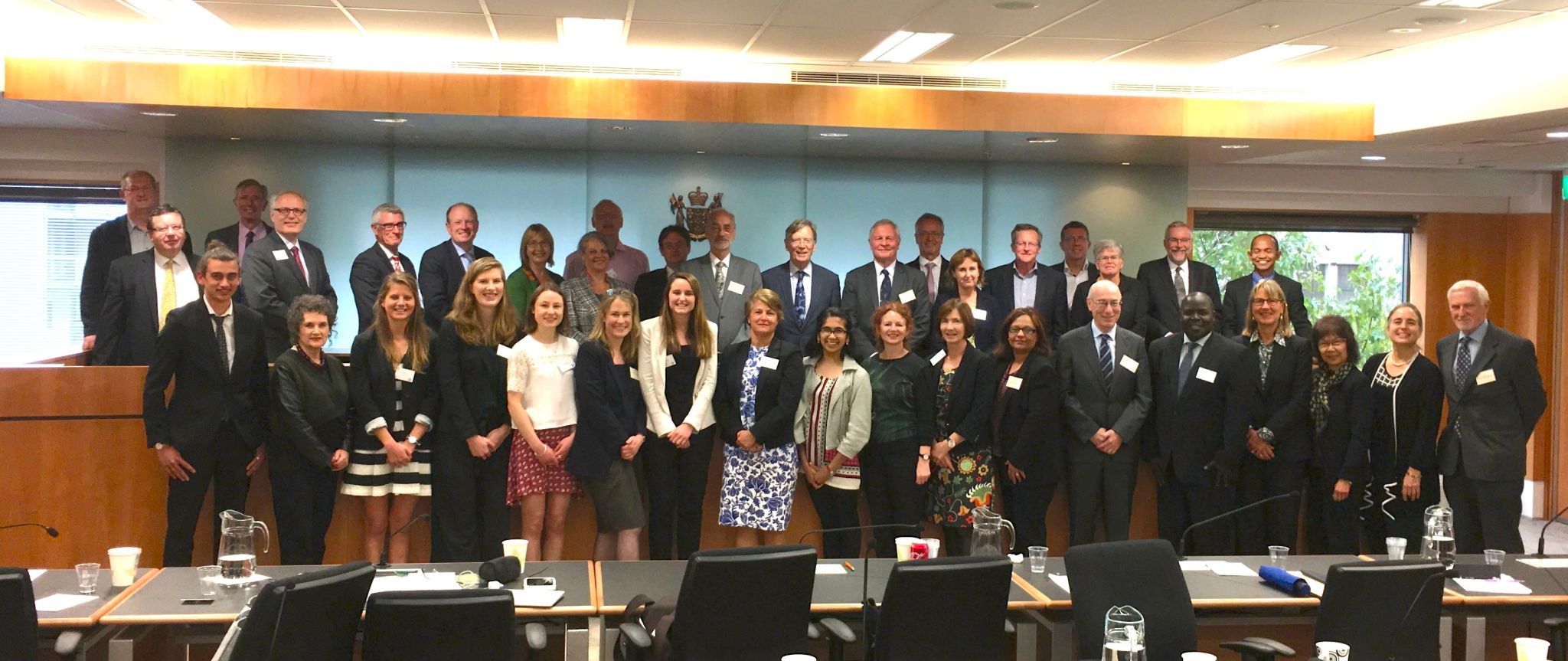
This conference was conducted by the New Zealand Environment Court on 11 and 12 April in Auckland, New Zealand. It involved 170 participants from around the world, including judges, environmental lawyers, academic representatives from various universities around the world. The focus was on the role of environmental courts and tribunals with an emphasis on what is needed to enhance environmental adjudication in the 21st century. The conference was inspired by the work of Professor George Pring and Professor Catherine Pring Environmental Courts & Tribunals: A Guide for Policy Makers, published by the United Nations Environment Programme (UNEP). That report is available at http://wedocs.unep.org/bitstream/handle/20.500.11822/10001/environmental-courts-tribunals.pdf?sequence=1
The Principal Judge of the New Zealand Environment Court, Judge Laurie Newhook and Associate Professor Ceri Warnock from the University of Otago in Dunedin New Zealand, were the main organizers. Judges at the conference included Lord Robert Carnwath of the Supreme Court of the United Kingdom, Justice Samson Okong’o, Presiding Judge, Land and Environment Court, Kenya.Justice Brian Preston, Chief Judge of the Land and Environment Court in New South Wales, Australia, Judge Michael E. Rackemann, Planning and Environment Court, and Justice Michael Wilson, Hawai’I Supreme Court. Queensland. Prominent environmental law professors included Professor Tracy Hester, University of Houston, USA, Professor Denise Antolini, Deputy Chair of the IUCN Commission on Environmental Law and Deputy Dean, University of Hawai’i, Law School, USA and Dr Gita Gill, Northumbria University, United Kingdom.
Prof Ben Boer’s paper was on the topic of “Environmental Courts and Tribunals and the Environmental Rule of Law”. His paper explained the history and basic elements of the IUCN World Declaration on the Environmental Rule of Law. Prof Boer was the main drafter of the Declaration, which was adopted a the First World Conference on Environmental Law in Rio de Janeiro, Brazil in April 2016. He defined the “environmental rule of law” as the legal framework of procedural and substantive rights and obligations that incorporates the principles of ecologically sustainable development in the rule of law. He explained that strengthening the environmental rule of law is the key to the protection, conservation, and restoration of environmental integrity. Without it, the Declaration says, environmental governance and the enforcement of rights and obligations may be arbitrary, subjective, and unpredictable. He pointed out that strengthening the rule of law is critical to protecting environmental, social, and cultural values and to achieving ecologically sustainable development. The Declaration states that the environmental rule of law and robust institutions are essential to respond to increasing environmental pressures that threaten the ecological integrity of the Earth, in a way that respects fundamental rights and principles of justice and fairness. He explained some of the basic principles associated with the Environmental Rule of Law. The 13 Principles are:
Principle 1 Obligation to Protect Nature
Principle 2 Right to Nature and Rights of Nature
Principle 3 Right to Environment
Principle 4 Ecological Sustainability and Resilience
Principle 5 In Dubio Pro Natura
Principle 6 Ecological Functions of Property
Principle 7 Intragenerational Equity
Principle 8 Intergenerational Equity
Principle 9 Gender Equality
Principle 10 Participation of Minority and Vulnerable Groups
Principle 11 Indigenous and Tribal Peoples
Principle 12 Non-regression
Principle 13 Progression
Prof Boer outlined some of the history of the principles, and indicated that, if adopted by courts and legislators, many of the principles will have direct implications for the way in which environmental law is drafted and implemented.
An intensive workshop was held on the second day. Its purpose was to bring together experts on environmental adjudication from around the world to discuss in detail the challenges facing environmental adjudication, reflected in the papers presented at the Conference on the day before. For part of the day participants were separated into groups to discuss particular themes in depth. Prof Ben Boer chaired the theme of “Environmental Rule of Law” with a focus on Climate Change. The specific aim of the workshop was to formulate the structure and contents for an edited book on specialist environmental adjudication to be published by an international publisher.